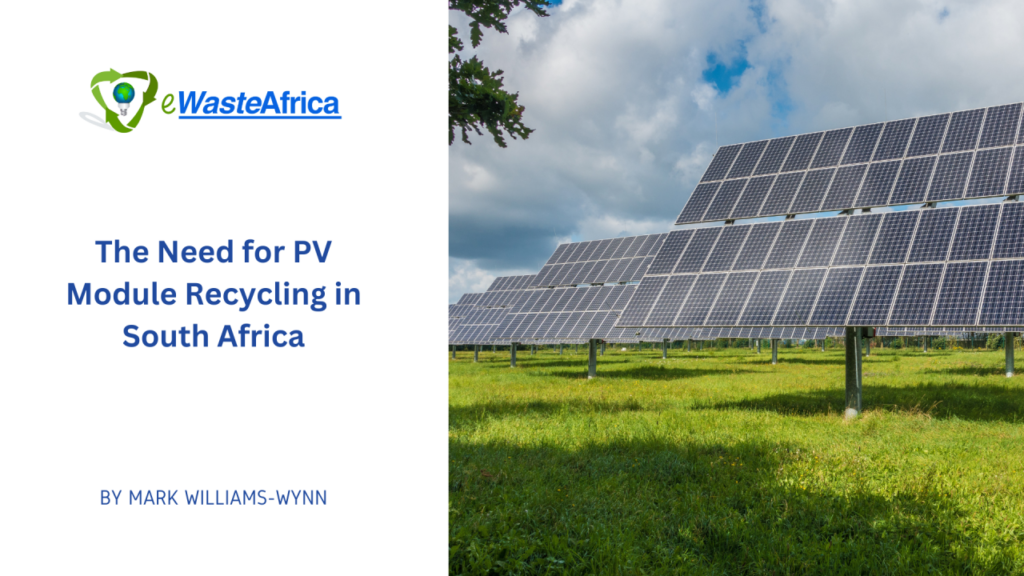
Reading time: 3 minutes
South Africa currently has approximately 26 million photovoltaic (PV) modules installed. These are the solar panels that generate electricity from sunlight. The vast majority of these panels will reach the end of their useful life within the next 20 years. The first round of the Renewable Energy Independent Power Producer Procurement Programme (REIPPPP), which is a government initiative to encourage private investment in renewable energy, led to the installation of 625 megawatts (MW) of solar power between 2011 and 2014. Most of the contracts for this round were for 20 years, meaning that unless extensions or new electricity supply agreements can be arranged, these panels will become waste and must be properly managed. Additionally, some PV modules are failing earlier than expected, increasing the need for recycling solutions.
Properly managing end-of-life solar panels is essential. In South Africa, these panels are classified as hazardous waste, because they could contain materials that could harm the environment if not handled correctly. If old panels are simply discarded instead of recycled, they contribute to pollution and are no longer part of a truly green energy solution. Furthermore, making and shipping solar panels has a big environmental impact. It takes between one and eight years for a solar panel to generate the same amount of energy that was used to manufacture it. When you also consider the chemicals, gases, and carbon dioxide (CO2) emissions from production and transport, it becomes clear that extending the lifespan of solar panels and recycling them properly is critical for sustainability.
Solar panels are made mostly of glass, which makes up between 85% and 95% of their total weight, depending on the type of panel. Other materials include an aluminium frame, electrical wiring, a plastic back sheet (for some panels), and layers of silicon that convert sunlight into electricity. Small amounts of metals like silver, copper and aluminium are also used to help conduct electricity. Because glass is the main component, reusing it is crucial. However, South Africa has very limited facilities for recycling glass, especially non-food-grade glass (glass that isn’t used for things like bottles and jars). This is because manufacturers prefer to use new (virgin) glass instead of recycled glass, due to concerns about purity and quality. As a result, most non-food glass types end up in landfills because there are no established recycling options for them.
At EWaste Africa, we have developed an innovative solution to address this issue. Instead of allowing glass from solar panels to go to landfill, we are repurposing it to manufacture interlocking eco-pavers—an environmentally friendly paving block. These pavers not only have a smaller environmental impact compared to traditional concrete paving blocks, but they have also been tested and shown to be as strong as standard pavers. By implementing this solution, we ensure that nearly all materials from old solar panels are reused, reinforcing our commitment to responsible waste management and a circular economy, where materials are continually repurposed rather than discarded.
As South Africa continues to expand its use of solar energy, finding sustainable ways to deal with old solar panels is becoming increasingly important. Recycling solutions like those developed by EWaste Africa play a crucial role in ensuring that solar power remains truly environmentally friendly in the long term.
Find Out More
If you would like to learn more about our PV module recycling solutions or discuss how we can assist with your end-of-life solar panels, please contact us. We are committed to providing innovative and sustainable recycling solutions to help build a greener future.

